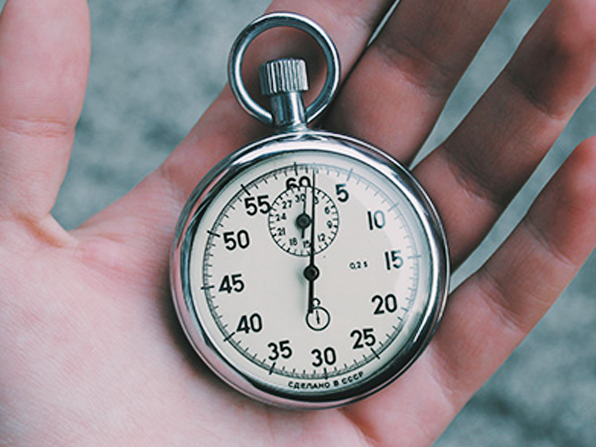
Your complete body transformation starts in the kitchen and with a sound nutritional plan
It’s a common saying that abs are made in the kitchen. And if you've ever worked out hard and not seen optimal gains due to your diet, you know how true it is. Losing fat and building muscle takes more than a commitment in the gym—they take a commitment to change the way you think about food, too.
And when you're working out regularly, whether your main goal is to drop a few pounds or bulk up your muscle mass, having a sound nutritional strategy is crucial in realizing your goals. Continue reading for our best tips on how to optimize your nutrition so all your hard work in the gym is realized with gains you can see.
Adjust Calories Based on Your Training Schedule
One of the biggest mistakes many people make is consuming the same number of calories every day of the week, regardless of whether they are training or not. Your training days will require more fuel to help push you through workouts and repair your body. A better strategy is to increase your caloric intake during training days and back off a bit on your off days. A 500 calorie swing can be a good starting place, but also adjust accordingly based on your personal goals.
Don’t Be Overly Restrictive
Overly restrictive diets can lead to more instances of binging or falling off your nutritional plan altogether. Instead of eliminating something out of your diet and calling it off-limits, a better strategy is to focus on eating healthy most of the time but allowing yourself the things you love in moderation. This also helps break monotony in your eating habits and keeps you better focused and motivated in achieving your goals.
Increase Protein Intake
Increasing your protein intake is one easy way to amplify your results when you're looking to lose weight. A 2005 study in the American Journal of Clinical Nutrition found that adults that increased their protein intake from 15 to 30 percent felt fuller longer, decreased their calorie intake, and saw more significant weight loss.[1]
Embrace Good Fats
When it comes to losing weight and building muscle, fat isn't always your enemy. However, your body needs fat to function correctly. Healthy fats such as omega-3 fatty acids can amplify your body’s fat-burning capabilities, so don’t shy away from fish oils, avocados, and nuts, in moderation.
Decrease Calories Slowly
Anytime you start a new nutrition or workout plan, it's a good idea to ramp up slowly to give your body and mind time to adjust to maximize success. When you're looking to decrease calorie intake, making drastic cuts in your caloric intake can be a shock to your body and leave you feeling hungry and anxious. Instead of cutting all your excess calories in one larger chunk, try decreasing by 200 calories at a time until you get to your desired intake.
Drink Up
Hydration plays a crucial role in maintaining a healthy body weight and helping you drop that extra baggage. Proper hydration keeps your metabolism functioning at its peak, joints lubricated, and helps fend off fatigue, amongst a host of other mental and physical benefits. People who are properly hydrated also tend to consume fewer calories since thirst and hunger can trigger some of the same responses in the body, and many opt for food instead of water.
In addition to paying attention to the above tips, we recommend adding a high-quality supplement to help you get rid of stubborn fat. The Ultimate Weight Loss Stack from BELDT Labs is a five-supplement stack that torches body fat and helps you achieve the toned physique you're after. When combined with sound nutritional strategies and regular exercise, you can see better results and maintain a healthy weight that improves your overall well-being.
[1] [1] Weigle, D. S., Breen, P. A., Matthys, C. C., Callahan, H. S., Meeuws, K. E., Burden, V. R., & Purnell, J. Q. (2005). A high-protein diet induces sustained reductions in appetite, ad libitum caloric intake, and body weight despite compensatory changes in diurnal plasma leptin and ghrelin concentrations. The American Journal of Clinical Nutrition, 82(1), 41-48.



